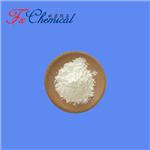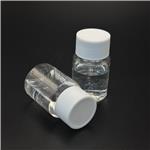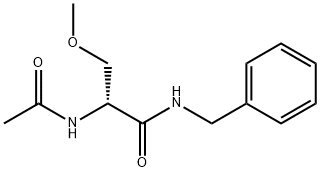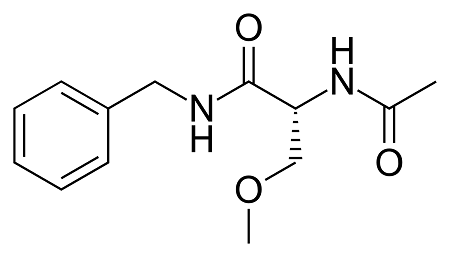lacosamide vs carbamazepine
Lacosamide (LCM) is a widely used third-generation antiseizure drug (ASD) approved for treating focal epilepsy. LCM treatment has been associated with a low risk of cognitive deterioration in patients affected by drug-resistant epilepsy. Moreover, a recent randomized controlled trial performed in healthy individuals documented that LCM had fewer neuropsychological side effects compared to carbamazepine (CBZ). Therefore, LCM seems to exhibit a favourable cognitive profile in healthy subjects.

Lacosamide
Lacosamide is a functionalized amino acid whose mechanism of action is thought to involve the enhancement of slow inactivation of voltage-gated sodium channels. Lacosamide was approved in the United States and Europe in 2008. Lacosamide has excellent oral bioavailability and minimal serum protein binding. Approximately 40% of the drug is excreted unchanged by the kidney; the remainder is cleared by liver metabolism, mainly by CYP2C19 to an inactive metabolite. Drug-drug interactions involving lacosamide appear to be minimal. A therapeutic range of 5–15 mg/L has been proposed. HPLC and LC-MS/MS procedures for measuring lacosamide concentrations in plasma or serum have been reported. The generally predictable pharmacokinetics of lacosamide limit the routine need for TDM other than to establish individualized therapeutic ranges or to manage therapy in patients with liver and/or kidney failure.
Adults receiving lacosamide as add-on therapy had a significant 50% responder rate compared to controls at a daily dose of 400 mg. Dose-related adverse events included dizziness, nausea, and vomiting. Most treatment-emergent adverse effects were mild to moderate in severity. Intravenous lacosamide is also well tolerated when administered as 15-, 30-, or 60-minute infusions. A slight increase in the PR interval on the ECG has been noted across all subjects. No data is available for children.
Carbamazepine
Carbamazepine is an iminostilbene derivative closely related chemically to tricyclic antidepressants. It was first approved as an antiseizure agent in 1974. Carbamazepine is used to control generalized tonic-clonic and complex partial seizures. It also acts as a mood stabilizer in bipolar disorder. There has been an increase in use for other disorders such as trigeminal neuralgia, schizophrenia and attention deficit hyperactivity disorder.
Similar to phenytoin, carbamazepine reduces experimentally induced, sustained high-frequency neuronal firing at doses that produce clinically relevant plasma concentrations. This effect seems to result from carbamazepine binding to inactivated Na+ channels, slowing neuronal recovery after activation. Carbamazepine also reduces Ca2+ and Na+ flux across the neuronal membrane. The carbamazepine metabolite, 10,11-epoxycarbamazepine, also limits sustained repetitive firing in neurons and could contribute to the antiseizure properties of carbamazepine.
Carbamazepine intoxication can lead to a life-threatening array of complications. Signs and symptoms include somnolence, seizures, ataxia, respiratory depression, decreased cardiac contractility, pulmonary edema, hypotension, and acute kidney injury. The Vd of carbamazepine is 0.6 to 1.2 L/kg, and as with phenytoin, it will increase somewhat with a large ingestion or liver or renal disease. It is highly protein bound at 75% with therapeutic levels, but the protein binding decreases with a toxic ingestion, older age, or liver or renal disease. Carbamazepine excretion is via the kidney, and the half-life will be significantly prolonged in CKD or AKI.
References:
[1] CLAUDIO LIGUORI . Lacosamide may improve cognition in patients with focal epilepsy: EpiTrack to compare cognitive side effects of lacosamide and carbamazepine[J]. Epilepsy and Behavior Case Reports, 2018, 10: 1-144. DOI:10.1016/j.ebcr.2018.02.004.[2] ELINOR BEN-MENACHEM. Long-term safety and efficacy of lacosamide and controlled-release carbamazepine monotherapy in patients with newly diagnosed epilepsy[J]. Epilepsia, 2019, 60 12: i-vi, 2343-2529, e128-e132, 2530-2535. DOI:10.1111/epi.16381.
You may like
Related articles And Qustion
See also
Lastest Price from Lacosamide manufacturers

US $0.00/KG2025-04-21
- CAS:
- 175481-36-4
- Min. Order:
- 1KG
- Purity:
- 98.0%
- Supply Ability:
- 100kg/month

US $0.00-0.00/kg2025-04-21
- CAS:
- 175481-36-4
- Min. Order:
- 1kg
- Purity:
- 99.99%
- Supply Ability:
- 20 tons



